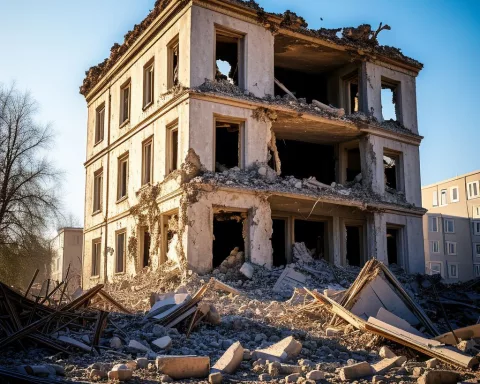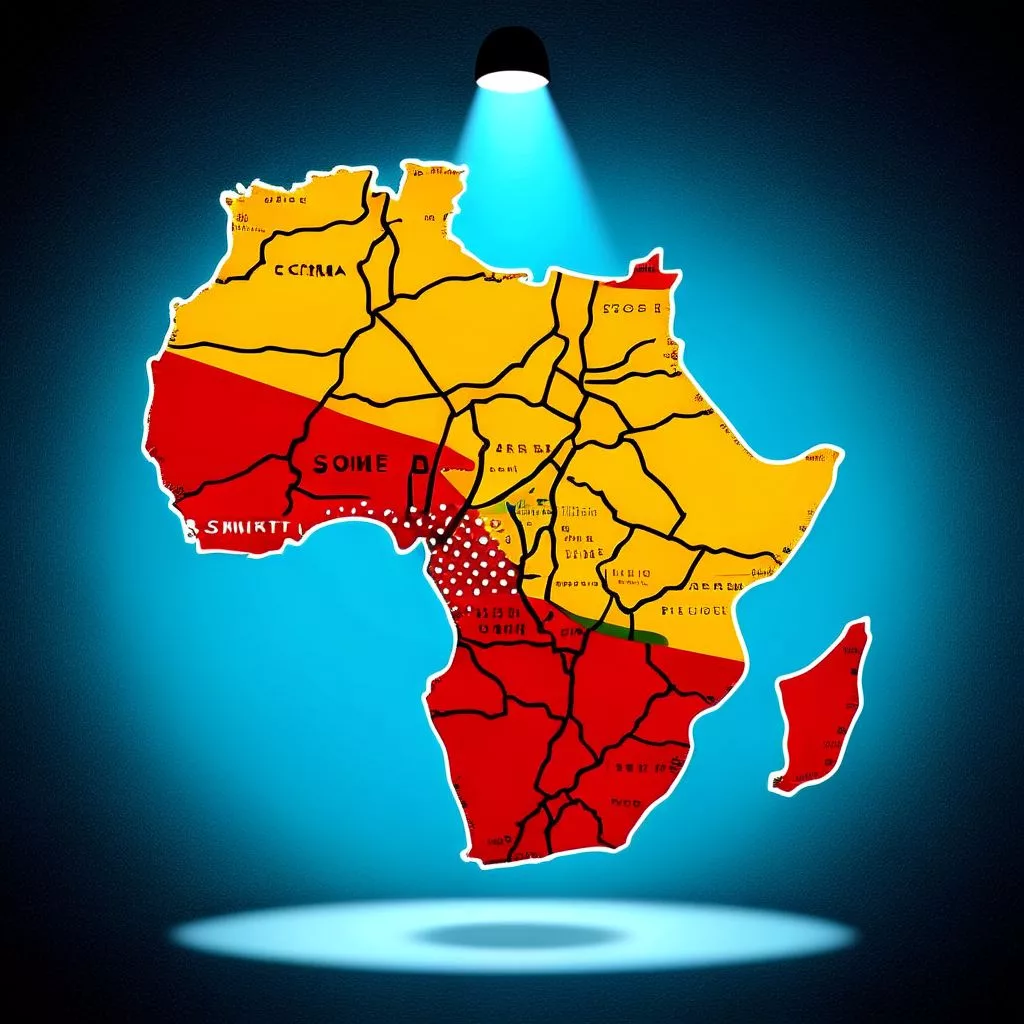A recent court ruling has sparked hope for safer railways in South Africa. The case involved a brave young woman who suffered severe injuries after jumping from a moving train to escape an attack. Her fight for justice revealed serious flaws in the Passenger Rail Agency’s safety and security measures. The court’s decision holds the agency accountable and emphasizes the urgent need for improvement in public transport, pushing for a future where passenger safety comes first. This victory could inspire broader changes, ensuring that South Africa’s railways don’t just connect communities but also protect the people who use them.
What are the implications of the recent legal victory for South Africa’s railways?
The recent ruling against the Passenger Rail Agency of South Africa (Prasa) emphasizes the necessity for improved passenger safety, accountability, and infrastructure management. It marks a pivotal moment for public transport reform, urging state-owned enterprises to prioritize human security alongside operational effectiveness.
The railways of South Africa have long served as both a critical link between communities and a reminder of the nation’s infrastructural challenges. As cities expand and populations increase, the need for safe and reliable public transportation becomes undeniably essential. Recent legal proceedings involving the Passenger Rail Agency of South Africa (Prasa) highlight significant issues concerning public safety, infrastructure management, and accountability. These events not only emphasize the system’s current vulnerabilities but also connect with broader historical and cultural discussions about transport, security, and modern growth.
A Harrowing Journey
In 2020, an ordinary train ride between Cape Town and Elsies River turned into a nightmare for a 27-year-old woman. As evening descended, she found herself in a perilous situation aboard the train. Around 8 PM, what should have been a routine journey became terrifying when three individuals attacked a fellow passenger nearby. Fearing for her life, she made a desperate decision to jump from the moving train between Vasco and Goodwood stations. This act of survival left her with grave injuries, including a fractured skull and severe trauma to her back and neck.
Her experience highlights the frailty of human life in the face of systemic neglect. She attributed her injuries to Prasa’s failure to provide adequate security and maintain proper operational standards. The lack of security personnel on trains and the issue of open carriage doors during transit were glaring oversights that posed daily risks to commuters. Her fight was not just for her own justice, but also for recognition of the systemic failures that endangered passengers every day.
On the other side, Prasa’s defense questioned her claims, challenging her standing as a paying passenger and the circumstances leading to her injuries. They argued that her decision to leap from the train was voluntary, framing her injuries as self-inflicted. This legalistic approach seemed to sidestep the pressing issues of passenger protection and organizational accountability.
Legal Victory and Its Implications
The Western Cape High Court’s decision to hold Prasa accountable was a landmark victory, not only for the young woman but also for the broader quest for safer public transit. By ruling in her favor, the court recognized the intrinsic duty of care that the agency owes to its passengers. This case serves as a contemporary allegory, reflecting themes of vulnerability and resilience that resonate throughout literature and art.
Historically, railways have symbolized progress and industrial might but have also been fraught with stories of danger and human missteps. The Industrial Revolution introduced advancements that came with tales of exploitation and risk, as seen in the works of authors like Charles Dickens. His narratives often highlighted societal inequalities heightened by industrial growth. Similarly, Émile Zola’s “La Bête Humaine” explored the darker sides of railway travel, delving into themes of violence and destiny.
In South Africa, the railway system is more than a means of transport; it is a stage where socio-economic disparities unfold, pitting the ideal of mobility against grim realities. The incident involving the woman aboard the train is a stark reflection of these tensions. It underscores the urgent need for a transportation network that not only facilitates movement but also ensures passenger safety, ensuring that modernization does not come at the cost of human security.
Beyond the Courtroom
The ruling against Prasa prompts a wider contemplation of accountability within state-owned enterprises. It urges these entities to deliver services responsibly, in line with the social contract they have with the public. Prasa’s situation mirrors a global challenge: the need to balance operational effectiveness with a focus on human safety and design.
To fully grasp the complexity of this issue, one must look at both individual and societal levels. On a personal scale, the woman’s distressing experience demands change and highlights a tragic event that could drive systemic improvements. On a broader scale, it calls for a reevaluation of public infrastructure strategies and priorities.
Artistic perspectives offer valuable insights into this dialogue. Much like Impressionist painters captured fleeting moments to reveal deeper truths about their era, modern South Africa must look beyond the immediate to address underlying flaws in its transport system. This requires not just infrastructural enhancements but a cultural shift towards proactive safety protocols and true accountability.
A Call for Transformation
The interplay of various narratives—legal, personal, artistic—holds the promise of transformation. As South Africa confronts its transportation challenges, the lessons from this case could pave the way for a more secure and just future. The court’s decision stands not only as a legal milestone but also as a profound call for reflection and action, urging society to reconcile the drive for progress with the essential need for human safety.
Frequently Asked Questions (FAQ)
What led to the recent court ruling regarding South Africa’s railways?
The ruling stemmed from a case involving a young woman who sustained severe injuries after jumping from a moving train to escape an attack. Her legal battle highlighted significant flaws in the Passenger Rail Agency of South Africa’s (Prasa) safety and security measures, prompting the court to hold Prasa accountable for its lack of proper operational standards.
Why is passenger safety a critical issue in South Africa’s railway system?
Passenger safety is vital as South Africa’s railways serve as a major link between communities. The increasing population and expanding cities amplify the need for safe and reliable public transportation. Recent incidents have underscored vulnerabilities in the railway system, emphasizing the urgency for reforms to protect commuters.
What were the specific safety failures identified in the case?
The court case revealed several safety failures, including the absence of security personnel on trains and the issue of open carriage doors during transit. These oversights posed significant risks to passengers, contributing to the dangerous environment that ultimately endangered lives.
How does this ruling impact the future of public transport in South Africa?
The ruling is a pivotal moment for public transport reform in South Africa, emphasizing the need for improved accountability and infrastructure management. It serves as a call for state-owned enterprises like Prasa to prioritize passenger safety, potentially inspiring broader changes to ensure that public transport protects those who use it.
What are the broader implications of this legal victory beyond individual accountability?
Beyond individual accountability, the ruling signifies a critical evaluation of the responsibilities of state-owned enterprises in maintaining public safety. It calls for a cultural shift within organizations to balance operational effectiveness with a strong commitment to human security, aligning their services with the social contract they hold with the public.
How can this incident inspire changes in the railway system?
This incident highlights the urgent need for transformation within South Africa’s railway system. By addressing systemic flaws and enhancing safety protocols, the lessons learned from this case can pave the way for a more secure and equitable public transport network, ensuring that modernization prioritizes the safety of all commuters.












